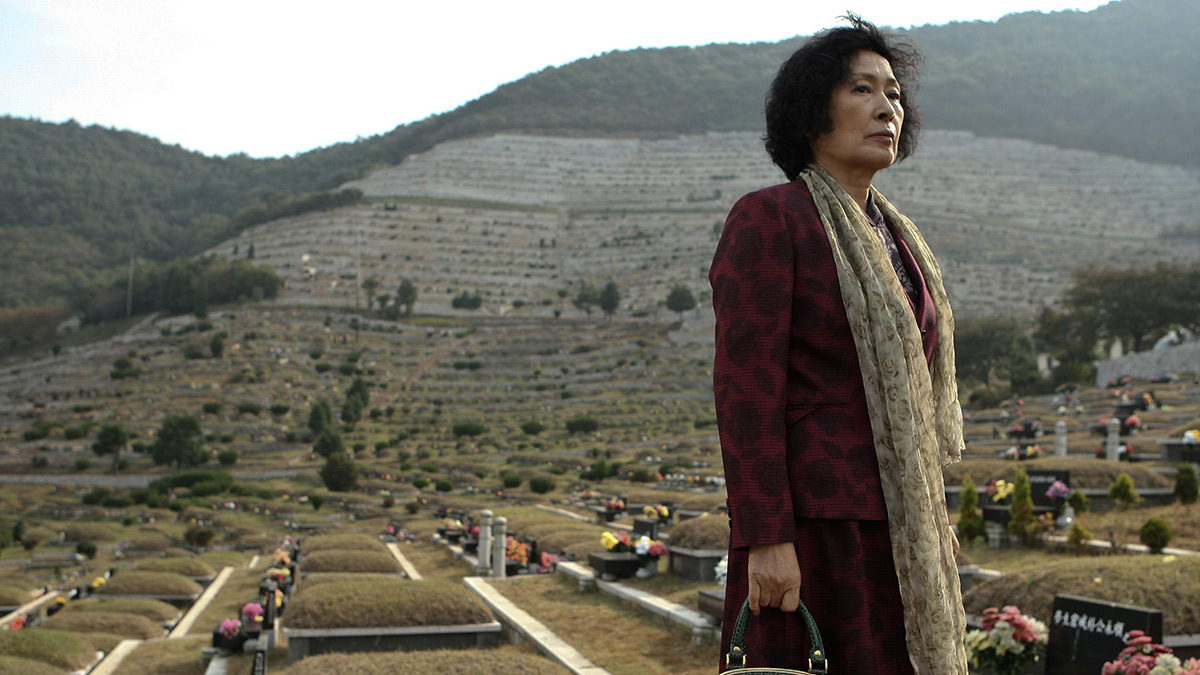
(C)2009 CJ ENTERTAINMENT INC. & BARUNSON CO., LTD. ALL RIGHTS RESERVED
“Mother” Bong Joon-ho unleashes the madness of universal love *Spoiler alert
2021.06.07
*This article touches on the ending of the story, so we recommend watching the movie before reading it.
“Mother” synopsis
A mother (Kim Hye-ja) raised her only son, Do-joon (Won-bin), while working at a herbal medicine store. Although the two were poor, they worked hard to survive as a mother and only child. My son was a shy but cheerful and innocent young man. One day, a gruesome murder occurs in the quiet town where the two live. A high school girl was found in a brutal condition. Do-joon was taken into custody as the prime suspect in the case. With nothing to prove his innocence, the police, in a hurry to solve the case, conduct a superficial investigation and plan to arrest Do-joon. Meanwhile, defense attorneys were unmotivated and a conviction seemed inevitable. The mother, who believes in her son's innocence, finally stands up for herself and runs off alone in pursuit of the real culprit in order to clear her son's suspicions.
When a newborn baby meets his father for the first time, many nurses say, ``You look just like your father!'' This is because after pregnancy, mothers experience morning sickness, changes in their physical condition, growing belly, painful childbirth, etc., and feel that the child is their own, while fathers have no physical experience to feel that their child is their own. , because love tends to be weak. Conversely, a mother's love for her child, which she feels through physical experiences that she cannot escape from, is innately deep and strong.
In the movie ``Mother'' (2009), a mentally retarded young man is accused of murder, and his ``mother'' independently investigates in order to exonerate her son.
Index
- The meaning hidden in the opening
- Kim Hye-ja, mother of the Korean people
- mother's absolute protection
The meaning hidden in the opening
A hill covered with dry fields dyed in dry colors. ``Mother'' comes walking from a distance. He takes his time and stops when he gets in front of the camera. The moment I heard the sound of a fly buzzing amidst the rustling of the withered leaves around me, my mother began to dance.
He hides his eyes and smiles shyly, then his expression changes to one of regret. Covering her mouth, she turned her back and continued dancing. The cut changes, and as the sun sets under a deep blue sky, Mother stands up and hides her hands in her clothes, and the title appears. This is the opening of ``Mother''.
It may seem like a vague image, but the scenes in the play overlap with each other. Kareno is the place where ``Mother'' wanders after discovering the truth and committing a crime. The sudden start of the dance is overlaid with the madness of ``Mother'', the sound of the wings of the flies makes her feel like she is about to die, and she hides her eyes in embarrassment at witnessing sex, shuts her mouth, and turns away, expressing her feelings of regret. And the title background hides the hand that committed the crime.
“Mother” preview
The opening is a series of metaphors that unify the entire film, and similar metaphors can be found throughout the main story. This is especially true at the beginning of the movie, when the mother chases after her son Do-joon, who runs out of the house to meet his friend Jin-tae, with medicine poured into a bowl to give him medicine. It's remarkable.
When I catch up with Do-jun who is standing in front of the bus stop and urinating, my mother stares at him (and his genitals) for a while, but she can't wait for the non-stop urination and puts the bowl into Do-jun's mouth. Give the medicine to the patient's mouth. The camera captures the medicine being poured into Do-joon's mouth and the urine flowing out at the same time. It is a scene that symbolizes the relationship between the two, with the ``mother'' pouring ``medicine'' = ``love'' into Do-joon's mouth, while Do-joon is drooling from underneath.
This scene overlaps with the scene of a couple that Alfred Hitchcock said he saw while traveling on a train in France. Looking out the window of a train slowly passing through a station, Hitchcock notices a couple standing against the wall of a factory. One of them was urinating standing up, while the other was huddled next to him with his arms crossed, staring at the urine (presumably his genitals) flowing.
Hitchcock felt deep love for the two, who shared even the dirty moment of excretion for humans and remained inseparable, and this led to the legendary kissing scene in ``Notorious'' (self-imposed regulations stipulated that kissing could last up to 3 seconds). Apparently, he came up with the idea for a kiss scene that lasted more than two minutes by repeating short kisses of less than three seconds in between conversations, hugs, and phone calls.
In ``Mother,'' ``Mother'' sees Do-joon running off after urinating, and uses her shoe to push the urine toward the drain, then hides the stain on the wall with a nearby block. This ``concealment of standing urination'' depicts ``mother'''s ``love'' for Do-joon, and at the same time, it is also a metaphor for the scene in which ``mother'' covers up Do-joon's crime.

